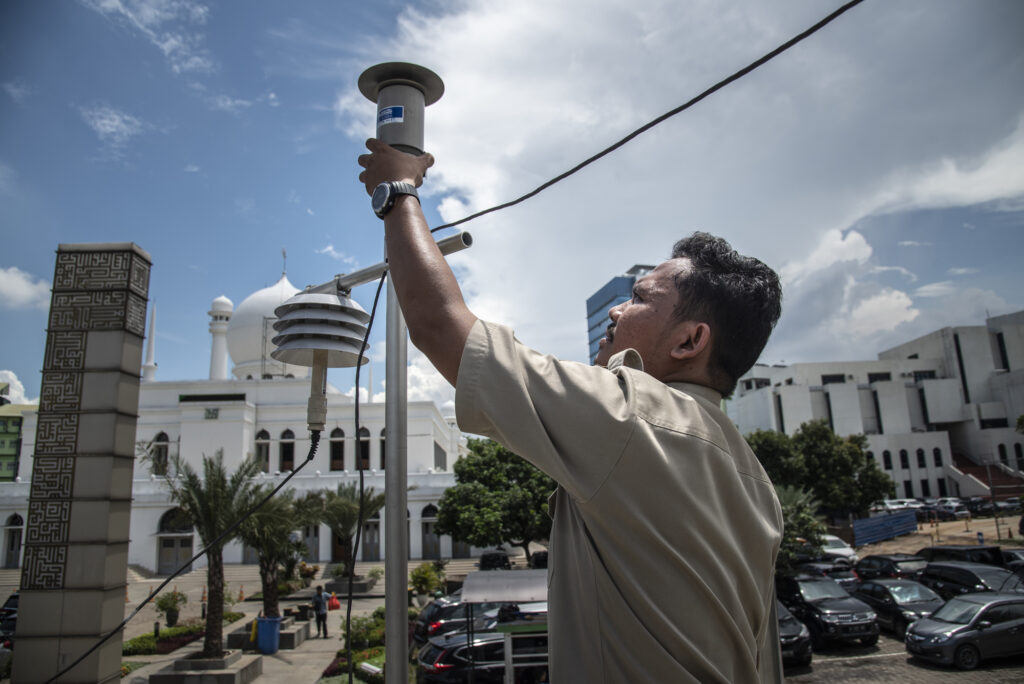
Each year, millions of people lose their lives due to poor air quality and millions more suffer from lifelong health effects. More than 90% of the people in the world breathe polluted air.
This World Environment Day focused on a critical environmental health issue—plastic pollution. And while many people know that plastic can harm the environment, its contribution to poor air quality and poor health outcomes is often overlooked.
Air and plastic pollution are interlinked in multiple ways. Burning plastic waste is common: Almost 40% of plastic waste globally is burned, releasing toxins in the air. This leads to increased risk of cardiovascular diseases and respiratory ailments and can also damage the nervous system. In 2021, a research study linked the severe smog in Delhi to the burning of plastics. Furthermore, greenhouse gases and other pollutants are released during the production of plastic, which worsens air quality and can drive climate change and other environmental concerns.
Plastic waste tends to release toxic chemicals and break down into microplastics if not managed properly. Microplastics are tiny particles, up to 5 mm in diameter, that can be suspended in the air and enter the human body through breathing. Inhaling microplastics has the potential to severely affect health, and children and elderly people are particularly at risk.
Mitigating air pollution from plastics requires collective efforts from government, communities and civil society. Vital Strategies’ Environmental and Climate Health team engages with governments and the health sector, providing technical expertise and consultative services to inform policies and influence public discourse about air pollution and its health impacts around the world. For example, in Indonesia, we partner with Jakarta’s city government and nongovernmental organizations to improve air monitoring, identify leading sources of pollutants, and measure the health impacts and costs of air pollution. In India, we work with state health departments, clinicians and local advocates for clean air to promote policies to reduce emissions.
Plastic contributes to air pollution across its life cycle, from production to disposal. Through reduction in plastic consumption and effective and efficient waste management, we can create pathways to cleaner air and better health.
Get Our Latest Public Health News
Join our email list and be the first to know about our public health news, publications and interviews with experts.